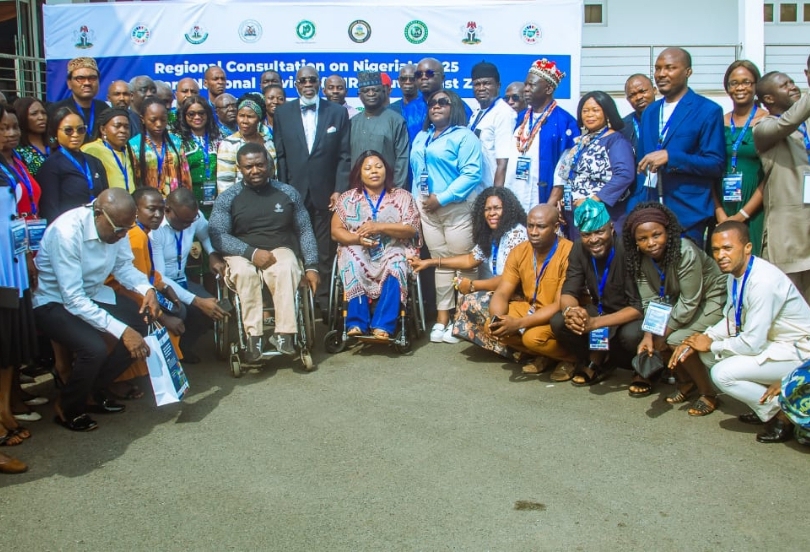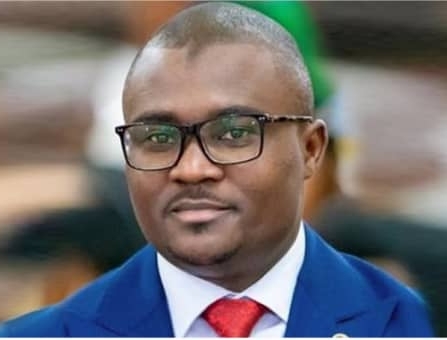As Nigeria prepares for its third Voluntary National Review (VNR) on the implementation of the Sustainable Development Goals (SDGs), key stakeholders across the South-East Geopolitical Zone have assessed the region’s implementation efforts, highlighting the need for strategic collaboration and continuous peer review to accelerate progress on the SDGs.
The assessment was part of the South-East Regional Consultation on Nigeria’s 2025 Voluntary National Review (VNR), convened by the Special Assistant on Media to the Senior Special Assistant to the President on SDGs in Enugu.
According to a statement released by the Special Assistant on Media to the Senior Special Assistant to the President on SDGs, the consultation served as a crucial platform for dialogue, collaboration, and strategic planning, as well as the evaluation of progress, challenges, and opportunities in implementing the SDGs.
In his opening remarks, the Governor of Enugu State, represented by the Secretary to the State Government, Professor Chidiebere Onyia, underscored the significance of the consultation in driving inclusive SDG progress. He emphasised the need to celebrate achievements while identifying gaps and fostering innovation, particularly for rural communities and youth.
“The SDGs are a call to action for every region, community, and individual. The South-East, with its strong human capital, entrepreneurial spirit, and resilience, has a crucial role to play in accelerating SDG implementation in Nigeria,” Onyia stated.
While acknowledging improvements in education, healthcare, and economic opportunities, Onyia urged stakeholders to ensure that development efforts prioritise marginalised communities. He called for bold solutions and enhanced collaboration to drive meaningful change in the region.
Delivering the keynote address, the Senior Special Assistant to the President on Sustainable Development Goals, Princess Adejoke Orelope-Adefulire, represented by the Head of the Conditional Grant Scheme in the Office, Dr Ifeyinwa Ukaegbu, highlighted the importance of the 2030 Agenda as a comprehensive framework for addressing economic, social, and environmental challenges. She noted that Nigeria, having previously presented VNRs in 2017 and 2020, is preparing for its third review in 2025.
“Effective VNRs rely on inclusive, broad-based, and participatory processes. That is why we are engaging with diverse stakeholders across Nigeria to ensure a ‘whole-of-government and society’ approach to SDG implementation,” she emphasised.
She further noted that the 2025 VNR aligns with global commitments, particularly following the adoption of the “Pact for the Future” at the 79th United Nations General Assembly (UNGA) in September 2024.
“The Pact reaffirms world leaders’ commitment to bold, accelerated, and transformative actions to fast-track SDG achievement,” she added.
Dr Babatunde Ipaye, Lead Consultant for Nigeria’s 2025 VNR, emphasised the importance of collaboration in exchanging ideas and developing actionable insights for SDG implementation, while the SDG Focal Person for Enugu State, Engineer Onyinye Akubuilo, praised the state’s commitment to sustainable development, attributing its progress to the socioeconomic policies of the state government, which have facilitated effective SDG implementation.
Stakeholders Review SDGs Progress as Nigeria Hosts South-East Regional Consultation on 2025 VNR in Enugu
As Nigeria prepares for its third Voluntary National Review (VNR) on the implementation of the Sustainable Development Goals (SDGs), key stakeholders across the South-East Geopolitical Zone have assessed the region’s implementation efforts, highlighting the need for strategic collaboration and continuous peer review to accelerate progress on the SDGs.
The assessment was part of the South-East Regional Consultation on Nigeria’s 2025 Voluntary National Review (VNR), convened by the Special Assistant on Media to the Senior Special Assistant to the President on SDGs in Enugu.
According to a statement released by the Special Assistant on Media to the Senior Special Assistant to the President on SDGs, the consultation served as a crucial platform for dialogue, collaboration, and strategic planning, as well as the evaluation of progress, challenges, and opportunities in implementing the SDGs.
In his opening remarks, the Governor of Enugu State, represented by the Secretary to the State Government, Professor Chidiebere Onyia, underscored the significance of the consultation in driving inclusive SDG progress. He emphasised the need to celebrate achievements while identifying gaps and fostering innovation, particularly for rural communities and youth.
“The SDGs are a call to action for every region, community, and individual. The South-East, with its strong human capital, entrepreneurial spirit, and resilience, has a crucial role to play in accelerating SDG implementation in Nigeria,” Onyia stated.
While acknowledging improvements in education, healthcare, and economic opportunities, Onyia urged stakeholders to ensure that development efforts prioritise marginalised communities. He called for bold solutions and enhanced collaboration to drive meaningful change in the region.
Delivering the keynote address, the Senior Special Assistant to the President on Sustainable Development Goals, Princess Adejoke Orelope-Adefulire, represented by the Head of the Conditional Grant Scheme in the Office, Dr Ifeyinwa Ukaegbu, highlighted the importance of the 2030 Agenda as a comprehensive framework for addressing economic, social, and environmental challenges. She noted that Nigeria, having previously presented VNRs in 2017 and 2020, is preparing for its third review in 2025.
“Effective VNRs rely on inclusive, broad-based, and participatory processes. That is why we are engaging with diverse stakeholders across Nigeria to ensure a ‘whole-of-government and society’ approach to SDG implementation,” she emphasised.
She further noted that the 2025 VNR aligns with global commitments, particularly following the adoption of the “Pact for the Future” at the 79th United Nations General Assembly (UNGA) in September 2024.
“The Pact reaffirms world leaders’ commitment to bold, accelerated, and transformative actions to fast-track SDG achievement,” she added.
Dr Babatunde Ipaye, Lead Consultant for Nigeria’s 2025 VNR, emphasised the importance of collaboration in exchanging ideas and developing actionable insights for SDG implementation, while the SDG Focal Person for Enugu State, Engineer Onyinye Akubuilo, praised the state’s commitment to sustainable development, attributing its progress to the socioeconomic policies of the state government, which have facilitated effective SDG implementation.
This year’s VNR, themed “Advancing Sustainable, Inclusive, Science and Evidence-Based Solutions for the 2030 Agenda for Sustainable Development and Its Sustainable Development Goals for Leaving No One Behind,” saw participation from government representatives, academia, people with disabilities, youth groups, and civil society organisations across the South-East states.
The outcomes of the consultation will play a vital role in shaping Nigeria’s 2025 VNR, contributing to the nation’s ongoing efforts to achieve the SDGs and ensuring that no one is left behind.
This year’s VNR, themed “Advancing Sustainable, Inclusive, Science and Evidence-Based Solutions for the 2030 Agenda for Sustainable Development and Its Sustainable Development Goals for Leaving No One Behind,” saw participation from government representatives, academia, people with disabilities, youth groups, and civil society organisations across the South-East states.
The outcomes of the consultation will play a vital role in shaping Nigeria’s 2025 VNR, contributing to the nation’s ongoing efforts to achieve the SDGs and ensuring that no one is left behind.










